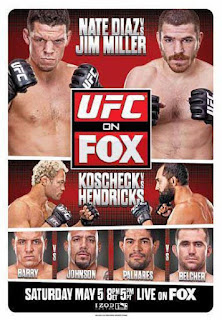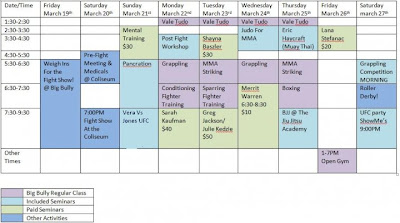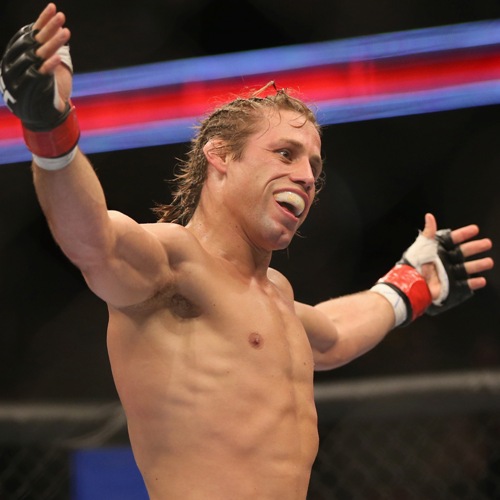In a recent interview Jon Fitch sparked conversation by declaring the Closed Guard “dead in MMA,” although he went further and made comments saying that big strong wrestlers (e.g. Jon Fitch) will just smash on opponents that try to play a bottom game. It certainly looked that way when Chael Sonnen took apart a jiu-jitsu black belt in Nate Marquardt, and submissions from the bottom have become increasingly rare throughout all levels of MMA.
Back in 1993 it was amazing to most people that Royce Gracie could actually win fights off his back. after seeing one-dimensional kickboxers and karate stylists getting pounded while helplessly flailing in the fetal position, the typical purchaser of UFC 1 was amazed that the skinny guy in the funny pajamas was having his way with opponents regardless of position. The idea that a skilled master could overcome a larger opponent from a traditionally disadvantaged position was one of the most unique charms of early fightsport products like the UFC. Is the sport losing that now? Is the Guard dead in MMA?
To begin from a more limited claim, the closed guard is indeed dead. Even this is a bold claim, the kind of thing that can embarrass a supposed expert as the game evolves as it has so many times before. At least this writer will be in good company, as no less a luminary than grappling wizard Shinya Aoki also feels closed guard is a dead end. In a recent blog posting (roughly translated here) Aoki says that playing closed guard is essentially handing over a decision win to the opponent. Surely if one of the best bottom players in the game thinks that the closed guard is of no use, it’s not too crazy to agree?
The closed guard has not always been useless. It has long been true in jiu-jitsu that it is easier to learn to defend than to attack. A few years ago it wasn’t too hard for a fighter like Wanderlei Silva to simply shut down an opponent that got on top of him and hang on for a stand-up. However, the game has moved on as more fighters learned how to attack. Closed guard has always been doomed to fail precisely because it offers no offense. If executed to perfection, it is a stalemate, but if the guard player falters even a little, he takes a punch or elbow and loses a little in the eyes of judges. Now that fighters are more adept at sneaking in punishment from the top position against a defensive opponent, it’s only a matter of time before someone trying to stall for a standup gets hit and has to work to re-establish control. When working double wrist control, the instant one grip is lost, a punch is coming unless your guard is open and forcing your opponent to work. Thus at this point the only fighters that can even break even with double wrist control and a closed Guard are freaks. It requires a truly iron grip, either through freakish hand strength (like Antonio Rodrigo Nogueira) or hands enormous enough to completely wrap around an opponent’s arm for a better grip (like Semmy Schilt). Barring that, a fighter will assuredly take a lot of punishment and lose the round.
 This same idea applies beyond just the closed guard, especially because more open guards create more opportunity for pounding. As Aoki explained, a fighter on the bottom must continually keep pressure on opponents with submission and sweep threats to keep them from getting settled and delivering punishment. However, while Aoki can shut down aggressive ground and pounders like JZ Calvancante and Joachim Hansen, fewer and fewer fighters are finding any success off their back, especially as a new breed of wrestlers with enormous natural punching power comes into their own (Mark Munoz, Brian Foster, Jake Ellenberger). The guard game may not completely die, but it needs to evolve to something more aggressive and destabilizing, something heavy on the sweeps and escapes, using the criminally underutilized butterfly guard and otherwise abandoning the old-school jiu-jitsu concept of “cooking” an opponent and simply holding on and waiting for them to make a mistake.
This same idea applies beyond just the closed guard, especially because more open guards create more opportunity for pounding. As Aoki explained, a fighter on the bottom must continually keep pressure on opponents with submission and sweep threats to keep them from getting settled and delivering punishment. However, while Aoki can shut down aggressive ground and pounders like JZ Calvancante and Joachim Hansen, fewer and fewer fighters are finding any success off their back, especially as a new breed of wrestlers with enormous natural punching power comes into their own (Mark Munoz, Brian Foster, Jake Ellenberger). The guard game may not completely die, but it needs to evolve to something more aggressive and destabilizing, something heavy on the sweeps and escapes, using the criminally underutilized butterfly guard and otherwise abandoning the old-school jiu-jitsu concept of “cooking” an opponent and simply holding on and waiting for them to make a mistake.
Perhaps the greatest test of this theory will be the upcoming bout between Cain Velásquez and Antonio Rodrigo Nogueira. Nogueira’s guard is legendary, and he’s likely to have to win the fight from there. Velásquez is a wrestler with as good top control as you’re going to find in MMA, and a very active ground-and-pound attack. If Cain can work comfortably in this guard and win out the fight, the concept of the guard game, as understood today, can be declared dead.
That sounds depressing for jiu-jitsu fans, but MMA fans have reason to be excited, as the guard is not something that can be completely abandoned, as defending off your back will always be essential in MMA. Instead, if it is lacking, the guard must be re-invented and re-discovered for the new era, and seeing the sport grow like that is one of the most exciting things for hardcore fans.

 By
By 

